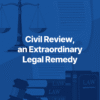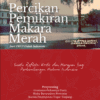Recently, a number of Indonesian doctors staged a protest against the Supreme Court’s decision to jail three doctors for their role in the death of a pregnant patient in Manado. It appears that the ruling has been interpreted as the criminalization of the medical profession, an issue that has angered many doctors who claim it was a mishandling of a doctor-versus-patient case where doctors’ immunity from legal charges was supposed to be guaranteed in the performance of their profession.
A relative of mine who is a doctor once told me how difficult it was to judge the failure of medical actions by doctors as negligence, let alone a crime.
He asserted that no matter how expert the doctor was or how sophisticated the treatment given, the human body is a complicated living system that sometimes may not react in line with scientific expectations.
I agree with the view that doctors must not be blamed for the failure of the human body to respond to appropriate medical treatment that sometimes ends in the loss of life.
However, with regard to the above issue, it would be wise if we first understood the concept of medical malpractice and criminal law before jumping to our own conclusions.
According to Law No. 29/2004 on medical practice, the medical profession is defined as a profession that performs on the basis of science. This profession also requires competence gained from continuous education and the following of an ethical code that prioritizes serving the community.
In light thereof, we are made to understand that doctors performing their profession accept a set of professional standards and code of ethics.
This also similarly applies to other professions such as accountants, lawyers or sailors who have their own standards and ethics.
All of them, in performing their profession, are subject to the supervision of professional organizations that through their ethics or disciplinary committees, assure the proper and correct conduct of the profession by among other means imposing professional sanctions against any violation of the code of ethics, incorrect performance, incompetence or negligence according to the set standards.
As such, any professional misconduct or failure by a doctor in rendering professional services to a patient in accordance with the applicable standards and prevailing regulations could be deemed as medical malpractice, which is defined by Black’s Law Dictionary, as a doctor’s failure to exercise the degree of care and skill that a physician or surgeon of the same medical specialty would use under similar circumstances.
On the other hand, there is the criminal law, which is intended to regulate social conduct, defining offenses against the community at large and which proscribes threatening, harming, or otherwise endangering the health, safety or moral welfare of the people.
The criminal law also establishes punishments for convicted offenders. In relation to this issue, the question is whether medical malpractice is equal to a crime and thus subject to criminal punishment.
There are both distinctions and congruities between medical malpractice and crimes. Medical malpractice could be purely professional errors or deeds against the ethical code, but in some cases medical malpractice could also be qualified as a criminal offense.
Medical malpractice is considered as a criminal offense if it meets the following criteria.
First, there is a perpetrator; second, there is an action; third, there is a provision under the Penal Code that qualifies an action as a fault; fourth, such a fault is punishable; and fifth, most importantly, such malpractice is proven to have fulfilled the elements of a criminal offense provided under the Penal Code.
Therefore, it is possible for doctors who are found to have committed medical malpractice to receive professional sanctions but at the same time be convicted and sentenced to criminal punishment. The same not only applies to doctors but also to other professionals.
For example, a sailor who makes a mistake in navigating a ship, causing a collision that results in fatalities, may be examined and punished by the Maritime Court with professional sanctions while at the same time convicted for negligence causing death by judges in a criminal court.
Given the foregoing, in response to the case in Manado, we cannot be a law unto ourselves; we must first scrutinize then comprehend the facts and evidence presented before making our conclusions. I have no idea about the facts and evidence available relating to the case in Manado, thus I cannot and do not want to make any conclusion in regard to the said case.
But seeing a number of doctors whom I assume to have a high level of intellectual capacity and respect fervently protest in the streets alleging the criminalization of their profession makes me wonder whether those protesting doctors have assessed all the facts and evidence that led the Supreme Court justices to render its verdict.
We must not forget the basic principle and spirit of our Constitution that every Indonesian should be treated equally before the law without exception no matter whether a doctor or even a president of Indonesia.
Those who are proven to have committed a crime must be fairly punished regardless of his or her profession, level of intelligence or position. I personally admire the esprit de corps shown by Indonesian doctors who staged the rallies in support of their unfortunate colleagues.
However, doctors as professionals who are entrusted with noble duties are supposed to be wiser and more objective in addressing their concerns about a problem rather than throw a fit of pique.
Without any prejudice, the Manado case could be a very valuable lesson for Indonesian doctors that they are not above the law. Doctors may be very intelligent but they are just human beings like the rest of us and can make mistakes.





